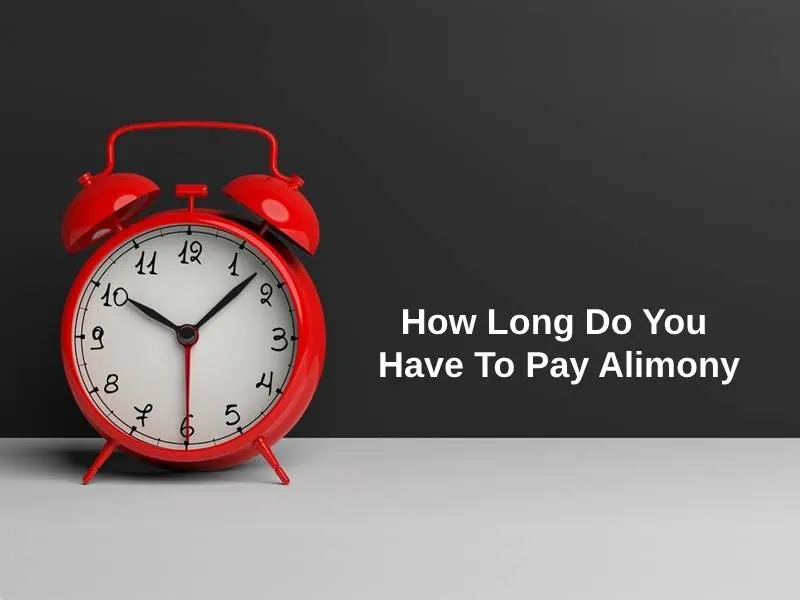Exact Answer: 30 to 60 percent of the length of the marriage
Alimony is a sum of money or a form of financial support that a person is required by law to give their spouse while separating or finalizing a divorce settlement. This is also known as settlement or maintenance money.
The sum is calculated keeping in mind several factors, including duration of the marriage, which is the foremost dependable character, followed by age, income, source of income, level of dependence of the spouse, and many other such determining factors. Many other aspects and factors can be considered while calculating the length and amount of the alimony.

How Long Do You Have To Pay Alimony?
In most cases, the length or the duration of the marriage plays an important role in determining the time for which a person needs to pay alimony. In many cases, if the marriage lasted less than 10 years, 50 percent of the length of the marriage is the period during which a person needs to pay the alimony.
In many countries and states, a marriage that lasted more than 10 years, entitles the dependant spouse to a lifetime of alimony.
There is more than a single factor, that is duration of marriage that determines the length of the alimony given in terms of years. The financial and academic situation of the individual as compared to the partner plays a huge role in the assessment of alimony.
For instance, a young couple married for 6 years will have to pay alimony for a shorter duration as compared to an older couple who have been married for the same amount of time.
Health and other personal aspects are taken into account while deciding who has to pay whom and for how long.
Gender used to play a major role in the allotment of alimony, but the impact has reduced in recent times.
It is now expected, if not said out loud that both the spouses, irrespective of their gender or role must be liable to bear the costs for maintaining the lifestyle and cost of living of the spouse who needs this support.
| Duration of marriage | The period during which alimony is paid |
| less than 10 years | 30 to 50 percent of the marriage duration |
| more than 10 years | 50 percent of marriage duration to a lifetime |
Why Do You Have To Pay Alimony For That Long?
Alimony is a set amount of money that was utilized or assumed to be utilized by the spouse for the upkeep of a certain standard of living or lifestyle, during the time of the marriage. When a couple tries to separate or divorce, one major cause of worry is the financial dependence of the person with the lower or no income.
There is a certain sense of dependence and entitlement that accompanies married life. When the marriage ends, so does the combined and shared finances.
To allow the individual and the partner to set up lives that are not dependent on each other, a certain time duration during which the person has a higher financial and sometimes health benefit or position is required to support the other partner until he/she can build a life or career to sustain their previous lifestyle or make a life of their own.
Alimony helps the other partner that maybe was financially dependent, pursue or complete their academic qualifications, to increase the chances of landing a good job to sustain a certain way of living.
If one of the partners is having medical or health issues, the alimony assures financial assistance if and when the need arises.
Conclusion
The amount and duration of the alimony depend on many factors which primarily include the duration of the marriage, age of the couple, financial status, health, and medical status, the level of dependence, and income.
There are numerous other factors like the academic qualifications, etc of the partners that come into play while deciding the alimony and its duration.
In many instances, alimony is not required for divorce but can be asked for. In the sense that it is not an absolute right.
The two partners can come in with a pre-decided and fair arrangement that they have mutually agreed upon. In cases where this does not happen, and they cannot settle on fair alimony, the court takes charge and sets the amount